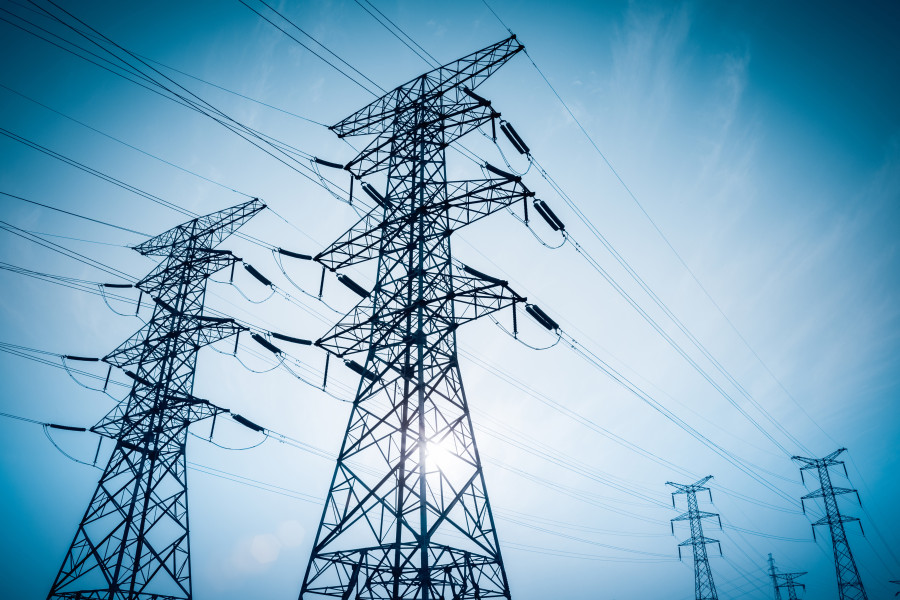Money
‘Reformatory’ Electricity Bill bogged down in processes three months on
Officials say more time is required to finalise the draft and bring in much-needed reforms.
Prahlad Rijal
Three months after drafting new regulations in a bid to reform 27-year-old laws governing electricity trade in the country, the Energy Ministry has not been able to move ahead with approval and enforcement of the proposed laws.
In September, the ministry had sought comments on the new provisions ensuring rights of local and provincial tiers on hydropower development, unbundling of state-owned power utility and facilitating private intermediary firms to export electricity export, through a 15-day-long stakeholder review process.
But the ministry has not been able to conclude the review process yet as officials say more time is required to finalise the draft and bring in much-needed reforms.
“The ministry is carrying out consultations with stakeholders and will soon seek comments on the proposed laws with local level and provincial authorities,” said Dinesh Kumar Ghimire, secretary of the Ministry of Energy, Water Resources and Irrigation. “After concluding the review, the ministry will forward the bill to the Finance Ministry and Law commision before seeking a cabinet approval on its endorsement.”
The bill which proposes to amend laws, 27 years after the country witnessed the enactment of Electricity Act, has incorporated provisions on delegating tasks related to survey of hydel schemes and issuing permits for hydroelectricity generation and trade.
As per the provisions of the bill, local governments will be responsible for issuing permits for power generation, transmission, distribution and trade for hydel schemes with an installed capacity of up to 3 megawatts.
The provincial governments will have the authority to issue permits for schemes of 3 to 20 megawatts and the Department of Electricity Development will issue permits for schemes above 20 megawatts.
Also, the laws are expected to end the practice of much-criticised first-come-first-served basis of issuing hydropower licences by making it mandatory for the authorities to issue licences for hydropower development and operation to private developers through open competition.
According to an energy sector expert close to the situation, open competition is needed and would result in the healthy development of the electricity market but it remains to be seen how the ministry will overcome cronyism in awarding licences through unfair means to party-affiliated developers.
“No points have been made in the Bill on the standards for qualification or how the so-called open competition would be free of preferential treatment or discrimination-free,” said the anonymous expert. “The provisions suggests that the ministry wants to pool more power within itself as the bill has also proposed to curtail and confer the rights of Electricity Regulatory Commission.”
As per the Electricity Regulatory Commission Act 2017, it can formulate and implement a minimum cost extension work plan to meet the internal demand and supply of electricity. Also, the regulator can prescribe conditions for electricity trade and monitor adherence to them. The Electricity Regulatory Commission can look into issues related to access for private producers to the national grid.
The draft bill explicitly states that the aforementioned provisions in the Electricity Regulatory Commission Act 2017 would be scrapped once the amended electricity act goes into effect.
The energy ministry had prepared the draft bill months after Minister for Energy, Water Resources and Irrigation Barshaman Pun vowed to bring institutional reform in the energy sector and also unbundle the Nepal electricity authority which currently enjoys monopolistic rights over energy purchase and sales in the country.
"With the Electricity Regulatory Commission in place and operational, and continued efforts in reforming the power sector, the ministry is now in the process of formulating a new act that will pave the way for institutional reform in the power sector," said the minister. "In this context, Nepal Electricity Authority should now prepare itself for such reform allowing it to make a smooth transition from vertically integrated utility to restructured unbundled entities."
As per the draft bill, an entity currently undertaking more than one of the tasks of generation, transmission and distribution of electricity must form different entities to carry out the tasks within three years after the enforcement of the act.
"The integrated entity shall carry out the valuation of property and liabilities within two years and hand over the financial and organisational capacity to a new entity," states the bill. "After being conferred with the responsibility, the new entity must obtain permits to carry out either one of the tasks related to generation, transmission, distribution or trade of power."




 20.12°C Kathmandu
20.12°C Kathmandu














